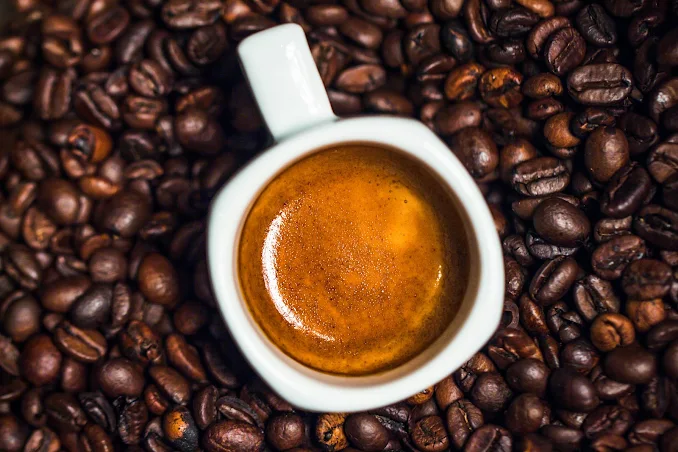How Your Morning Cup Can Help You Shed Pounds
Coffee—many of us can’t start our day without it. But did you know that your favorite morning beverage may also help with weight loss? From boosting metabolism to curbing your appetite, coffee offers more than just an energy boost. In this post, we’ll explore the science behind coffee and weight loss, how it works, and the best way to incorporate it into your weight-loss routine.
1. How Coffee Boosts Metabolism
One of the key reasons coffee is linked to weight loss is its ability to enhance your metabolism. Caffeine, the main active ingredient in coffee, stimulates the central nervous system, increasing your metabolic rate. When your metabolism speeds up, your body burns more calories—even when you're at rest.
Studies suggest that caffeine can increase fat burning by up to 10% in people with obesity and up to 29% in lean individuals. This effect helps the body break down fat and use it for energy, especially during exercise.
Pro Tip: Drink a cup of coffee about 30 minutes before a workout to maximize fat burning!
2. Coffee as a Natural Appetite Suppressant
Coffee not only increases your metabolism but also helps control your appetite. By affecting hormones like ghrelin (the hunger hormone), caffeine can reduce the urge to snack or overeat. This effect makes coffee an excellent tool for those following intermittent fasting or calorie-restricted diets.
While the appetite-suppressing effects of coffee are temporary, they can help you manage cravings, especially during fasting periods or in between meals. Remember, moderation is key—too much caffeine can lead to jitteriness and cravings for sugary foods.
3. The Power of Antioxidants in Coffee
Coffee is rich in antioxidants, particularly chlorogenic acid, which has been linked to various health benefits. Chlorogenic acid helps regulate blood sugar levels by slowing the absorption of carbohydrates in the digestive system. This can prevent spikes in blood sugar, which often lead to overeating or sugar cravings.
Additionally, antioxidants in coffee help fight inflammation, which is associated with weight gain and metabolic issues. By drinking coffee, you’re not only getting a metabolism boost but also protecting your body against inflammation-related weight gain.
4. How to Drink Coffee for Weight Loss: Best Practices
To reap the benefits of coffee for weight loss, how you drink it matters. Here are some key tips:
Skip the sugar: Adding sugar or high-calorie creamers can negate the benefits of coffee. Stick to black coffee or use plant-based milk alternatives like almond or oat milk.
Don’t overdo it: The ideal amount of coffee is around 2-3 cups a day. Drinking more can lead to caffeine overload, which increases cortisol (the stress hormone) and may actually contribute to weight gain.
Drink before exercise: Coffee is a great pre-workout beverage. The caffeine will give you an energy boost, helping you work out harder and burn more calories.
Pro Tip: If you crave a flavored coffee, try adding cinnamon or vanilla extract instead of sugary syrups for a tasty, calorie-free option.
5. Potential Downsides of Using Coffee for Weight Loss
While coffee can support your weight-loss journey, it’s important not to rely on it alone. Drinking too much coffee can lead to negative side effects such as increased heart rate, anxiety, and disrupted sleep. Lack of sleep, in turn, raises cortisol levels, which can encourage fat storage—particularly around your belly.
Moreover, becoming too dependent on coffee can reduce its effectiveness over time. If you find yourself needing more and more coffee to feel alert or suppress hunger, it might be time to cut back.
6. Coffee Alternatives That Support Weight Loss
If you’re not a big fan of coffee or want to diversify your weight-loss beverage options, consider these alternatives:
Green Tea: Known for its metabolism-boosting effects, green tea contains catechins and a small amount of caffeine. This combination helps enhance fat burning, especially during exercise.
Herbal Teas: While caffeine-free, herbal teas like peppermint or ginger tea can aid digestion, reduce bloating, and curb cravings.
Water with Lemon: Staying hydrated is essential for weight loss. Adding a splash of lemon to your water not only boosts flavor but also supports digestion and detoxification.
Is Coffee Good for Weight Loss?
In conclusion, coffee can be a helpful addition to your weight-loss routine. Its ability to boost metabolism, suppress appetite, and deliver powerful antioxidants makes it an excellent choice for those looking to shed extra pounds. However, coffee is not a miracle solution—it works best when paired with a balanced diet, regular exercise, and good sleep.
So, next time you brew your morning cup, remember that you're not just fueling your day—you might also be fueling your weight-loss goals.
Have you tried using coffee for weight loss? Share your experience in the comments below! And don’t forget to check out our other health and wellness tips on the blog, from nutrition advice to fitness routines that can help you reach your goals faster.












0 Comments
Hey! Leave A Comment or A Question
Emoji